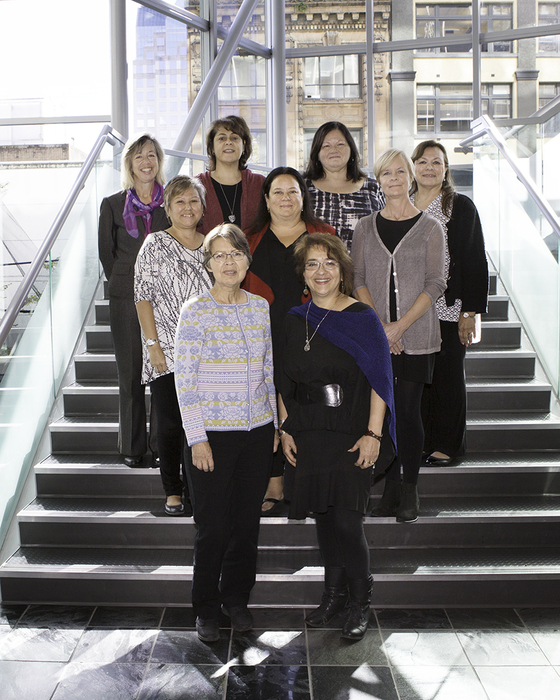The Indigenization Project has grown since it was announced this past April. This collaborative project will develop open educational professional learning resources that contribute to an increased awareness and understanding of Aboriginal histories, cultures and perspectives, and ways of knowing for those who work in post-secondary institutions. Ultimately, this incorporation of Indigenous epistemologies into professional practice will enable post-secondary institutions to continue to:
- Develop the structures and processes by which Indigenous students experience their post-secondary education in resonance with their own lives, worldviews, and ambitions;
- Help meet the goal, inherent in the Truth and Reconciliation Calls to Action, that non-Indigenous people be prepared to live well and work well alongside Indigenous peoples; and
- Appropriately respond to social and economic development education and training needs of Indigenous nations, communities and organizations across British Columbia.
These open learning resources will:
- Be designed for various audiences to include administration and educational leadership, teaching faculty, student services personnel, researchers, and curriculum and instructional designers.
- Include resources and considerations on meaningful and authentic engagement. It is the hope of the steering committee and the project team that these resources inform, guide and ultimately transform our work with all adult learners.
- Will supplement, rather than replace training currently offered in institutions. It is the strength of local First Nation and Métis partnerships that will provide depth and breadth of learning for all employees within post-secondary institutions. This strength recognizes that place-based Indigenous knowledges, languages, and practices will be reflected in the localized delivery of Indigenized learning resources.
Steering Committee

BCcampus and the Ministry of Advanced Education’s Teaching Universities, Institutes and Aboriginal Programs Branch have worked together to engage a project steering committee that represents Indigenization and professional learning in post-secondary education. The Steering Committee includes the voices of renowned Indigenous scholars from BCIT, NVIT, Okanagan College, and UBC along with representatives from various Indigenous education organizations as Indigenous Adult Higher Learning Association (IAHLA), First Nations Education Steering Committee (FNESC)), I-LEAD (network of post-secondary Indigenous educational leaders), Metis Nation BC (MNBC) and BCAPSC (BC Aboriginal Post-Secondary Coordinators).
In September, BCcampus seconded Dianne Biin from Camosun College to be the Project Manager and Content Developer for the Indigenization Project. Dianne, who is from the Tsilhqot’in First Nation, will work alongside the steering committee and stakeholders to develop the project and lead components such as the environmental scan.
Aligned with one of our key mandates, BCcampus leverages expertise throughout the post-secondary system to help institutions meet the education and training needs of B.C. students. We shepherd innovation and distribute new learning so that all B.C. post-secondary institutions and students can benefit. One of the ways we do this is by leading the co-creation process of needed open education and training resources with stakeholders and partners. Together, with representation across the academic, government, community, private and non-profit sectors, we build a shareable resource that aims to support provincial strategies and goals.
Over the next few months:
In order to avoid redundancies and also to guide evidence-based decisions, Dianne Biin will conduct an environmental scan across post-secondary institutions in the province and explore exemplary inclusive educational practices across Canada and abroad. This scan will aim to highlight existing professional learning resources at the post-secondary levels.
Notable quote
“I welcome the opportunity to work with other remarkable people and educators across the province and share resources and approaches in a coordinated manner. We are at a crux of respectful and relevant relationship building. This is a long path that began in the 1970’s and the path has new markers since the release of the Calls to Action from the Truth and Reconciliation Commission. I feel I can support this path and hold up promising practices for others to try.” – Dianne Biin, Project Manager and Content Developer, Indigenization Project, BCcampus
Learn more:
- Truth and Reconciliation Commission – Calls to Action (PDF)
- AVED – Aboriginal Post-Secondary Education and Training Policy Framework and Action Plan (PDF)
- There’s big buzz at BCcampus this fall
Join us at an upcoming event:
-
Facilitator Development Online (FDO) – Nov. 7 – 18, 2016
-
One-hour Pressbooks Training Webinar – Nov. 29, 2016
-
VizEd: Going Visual for Teaching & Learning – Feb. 21, 2017
-
Liberating Structures – Feb. 22 – 23, 2017
-
Facilitating Learning Online (FLO) – Mar. 20 – Apr. 21, 2017
-
Save the Date: Open Textbook Summit 2017 – May 25 – 26, 2017
